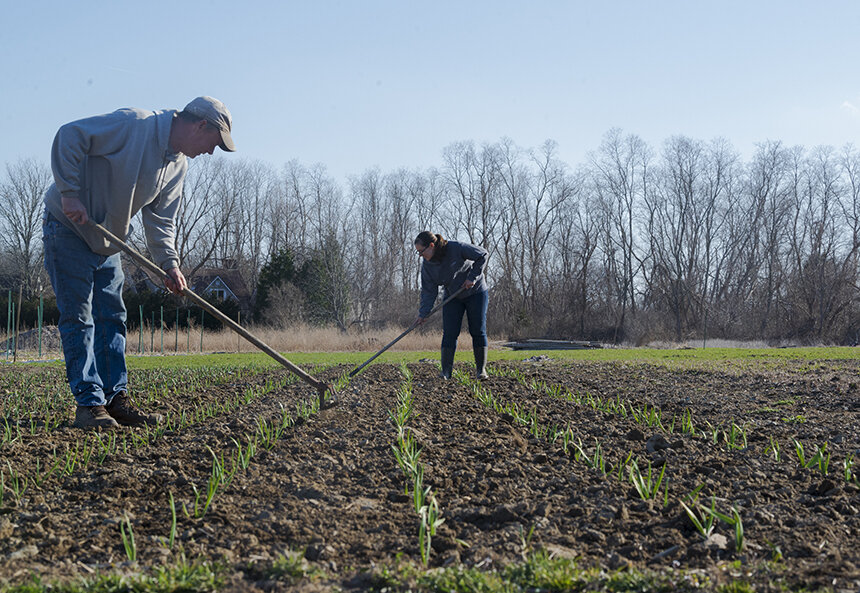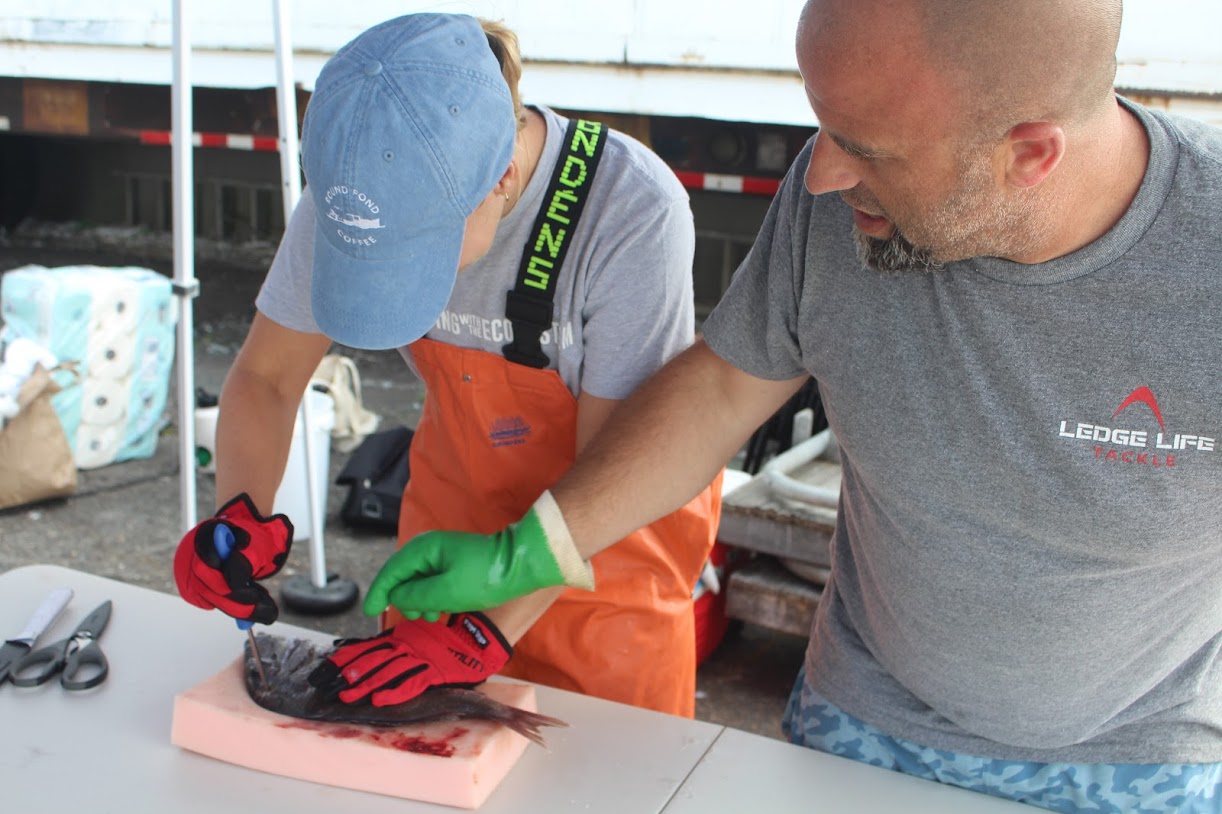Backyard Farms Grow City’s Food Supply
April 11, 2011
PROVIDENCE — It took about 5 tons of organic material and a good chunk of time during the last growing season to improve the soil on his seven-eighths of an acre lot, but this year urban farmer Than Wood is ready to grow some serious food.
In fact, Wood and three other urban farmers are confident enough in the bounty their three city lots will produce this season that they are offering 12 20-week CSAs for West Side and Olneyville residents beginning in June. The cost is $10 a week and will feature a lot of cooking/salad greens. Pickup will be Wednesdays at Wood’s Front Step Farm.
“Last year I spent a lot of time improving the soil, adding clean fill and having the soil tested,” said Wood, an East Providence native who began renting a vacant lot on Westminster Street last year. “I was basically building good soil for this year.”
To improve the soil quality on a debris-speckled lot that had been vacant since the home that once stood there burned down in the 1940s, Wood needed some nutrient-rich compost. For that, he needed some serious food waste and other organic matter.
Wood accompanied his mentor, Rich Pederson, steward of the Southside Community Land Trust’s City Farm, on weekly trips to a beach in Little Compton to collect seaweed. He picked up coffee grounds from Seven Stars Bakery on Broadway and collected the leftover pulp Café Zog on Wickenden Street produces after making freshly squeezed juice smoothies.
He got chicken manure from Whispering Elms Farm in North Scituate, claimed left-behind straw bales that had been used in the I-Way construction project and started a side venture called Farm in a Cart. Wood rigged his bicycle with a trailer and bin that allowed him to cart about 300 pounds of compost a week from 15 residences scattered across the city to his fledgling farm.
Thanks to the many apple cores, broccoli stalks, potato peels and other food waste Wood towed away from neighbors’ homes, plus all that hay, coffee grounds, pulp, chicken poop and seaweed he collected, the ambitious city farmer was able to replace the mound of asphalt and fire-damaged debris he inherited with a heap of nutrient-rich compost.
Recently, Wood covered his beds with 2 inches of that homemade “black gold,” which he hopes will stimulate the lot’s hardscrabble soil. He has 1,000 seedlings growing under a grow-light setup in his apartment a few blocks away. He is waiting for the weather to warm up before planting them in his farm’s newly enriched soil.
“The produce yields weren’t good enough last year … the soil wasn’t good enough,” said Wood, who spent the winter working on a friend’s farm in California.
The inaugural Backyard Farms CSA is collaboration of Wood’s Front Step Farm and Sidewalk Ends Farm — a vacant lot on Harrison Street that Laura Brown-Lavoie, her sister Tess and childhood friend Fay Strongin are transforming into an urban farm.
This year, the three inspired young women are going to use roughly half of the 4,275-square-foot lot to grow vegetables, some in raised beds — a wildflower meadow will take up much of the remaining land. They are having the soil tested for lead, and using food waste collected at the McAuley House on Elmwood Avenue to create compost.
Like Wood, Laura Brown-Lavoie and Strongin are growing seedlings in two grow boxes in their small apartment. “We’re basically sleeping next to our plants,” Strongin said. “Our bedrooms smell like soil.”
This four-farmer CSA also is using a lot on Bowdoin Street in Olneyville to grow tomatoes, kale, collards, beans, chard, parsley, basil, spinach and arugula. Besides selling CSA shares, Backyard Farms also will be selling its produce Thursdays at the Armory Farmers’ Market.
Strongin and Brown-Lavoie also are offering a bread CSA for $6 a week, to go along with the produce being grown by the three-farm collaborative. “We’ll be baking the bread in a regular oven until we get the skills down of baking in a mud oven,” said Brown-Lavoie, a 2010 Brown University graduate who is Pederson’s apprentice at City Farm this season.
Wood’s Front Step Farm features a handmade “mud” oven made of cinderblocks. He cooked pizzas in the oven during a few gatherings last year. The pizzas were topped with vegetables grown in his garden.
“We’re excited to be growing food here as urban farmers,” Brown-Lavoie said. “We hope the city wakes up and provides an incentive for landowners to grow food and creates zoning for urban agriculture.”
Categories
Join the Discussion
View CommentsYour support keeps our reporters on the environmental beat.
Reader support is at the core of our nonprofit news model. Together, we can keep the environment in the headlines.
We use cookies to improve your experience and deliver personalized content. View Cookie Settings



